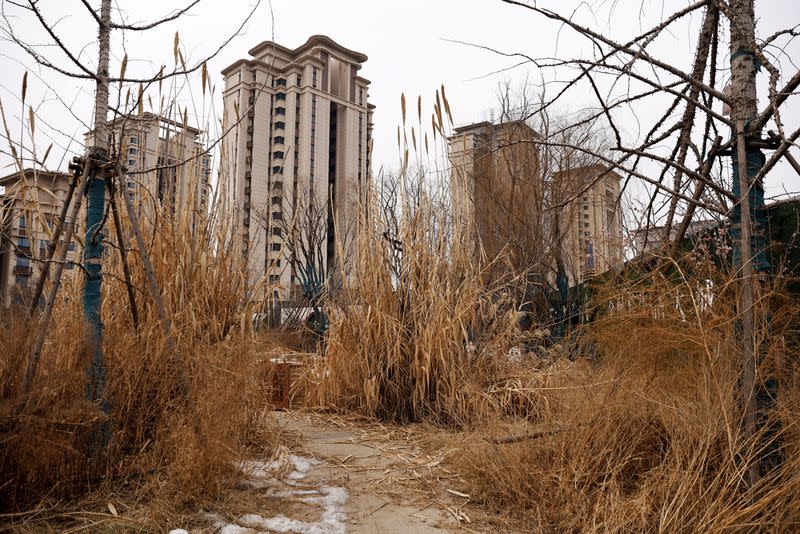Ministry of Finance officials in China are undertaking a review of work done by the ‘Big Four’ auditing firms for local companies, sources have revealed.
Concern has arisen that the auditing giants have not been doing enough to uncover illegal corporate activity, based largely on a huge scandal at China Evergrande, one of the world’s largest building conglomerates, which defaulted on massive debts and was later found to have inflated its revenue by $78 billion.
The tighter scrutiny, which has not been previously reported, is mainly focused on Deloitte, EY, PwC, KPMG and their audits of some financial firms as well as highly leveraged companies, three sources said.
ALSO SEE: China Consumer Inflation, Producer Prices Hit by Weak Demand
The review began a couple of months ago and comes in the wake of a regulatory probe into “intermediaries” for property giant China Evergrande Group, which refers to auditors, rating agencies and other providers of financial services.
Evergrande, which defaulted on debts totaling more than $300 billion has been ordered into liquidation, was found by authorities to have overstated revenue at its main unit Hengda by 564 billion yuan ($78 billion) over two years through to 2020.
It is only one of scores of property developers to have defaulted on debt – a crisis that has hobbled economic growth and triggered concerns about just how much exposure financial firms have to the sector.
Chinese regulators this month pledged a clampdown on financial fraud, seeking to restore confidence in country’s struggling stock markets.
The finance ministry makes routine checks of audits done by the Big Four but this year it has demanded far more documents than previously and the number of queries the audit firms have had to field has jumped, the people said.
Focus on weak lenders in debt-laden areas
According to two of the sources, the ministry is particularly interested in audits of small and weak lenders from debt-laden Chinese provinces.
Audits of Chinese asset management companies are also under the microscope, said one source. Audits for highly leveraged state-owned enterprises and property developers are also being scrutinised, the second person said.
All sources, two of whom had direct knowledge of the scrutiny, declined to be identified due to the sensitivity of the matter.
The Ministry of Finance and the Big Four firms did not respond to Reuters’ requests for comment.
The Big Four firms have built up a substantial presence in China over the last couple of decades as Chinese companies set their sights on listing in Hong Kong and overseas and as the world’s second-largest economy became more open to foreign investors.
But the problems at Evergrande have highlighted failures on the part of auditors “to catch… issues before it’s too late,” Francine McKenna, founder of accounting and auditing newsletter The Dig, said.
“The Ministry of Finance is rightfully concerned about whether China’s financial services firms are vulnerable to the ongoing issues in the real estate sector,” she said.
She added that regulators are probably keen to know if audit firms have captured the true picture about concerns such as bad loan exposure and the extent of leverage at their client companies.
PwC facing record fine
PwC is facing a record fine of at least 1 billion yuan ($138 million) due to failings in auditing Evergrande, according to a report in May.
One of the sources said the fine was still being finalised and is not likely to be announced this month.
Even before the spotlight fell on PwC’s work for Evergrande, Deloitte was fined $30.8 million last year by Chinese authorities for failing to perform its duty in assessing asset quality at China Huarong Asset Management.
Huarong failed to release its 2020 earnings on time, eventually reporting a huge loss. It then had to submit to a government-led restructuring that saw non-core businesses sold off.
- Reuters with additional editing by Jim Pollard
ALSO SEE:
Evergrande Liquidators ‘Probing PwC, Others to Recoup Losses’
Chinese Clients Ditching PwC After China Evergrande Fiasco
China’s Property Debts Seen Weighing Down Economy for Years
PwC Probed For ‘Enabling Evergrande Misconduct For Years’
Mortgage Delinquencies in China Soared by 43% in 2023
Evergrande Chief’s Two Luxury Mansions ‘Seized by Creditor’
Evergrande Chief Suspected Of Transferring Assets Offshore: WSJ
China Evergrande Chairman ‘Suspected of Crimes’, Company Says
Hui Ka Yan and The Rise and Fall of China Evergrande
























